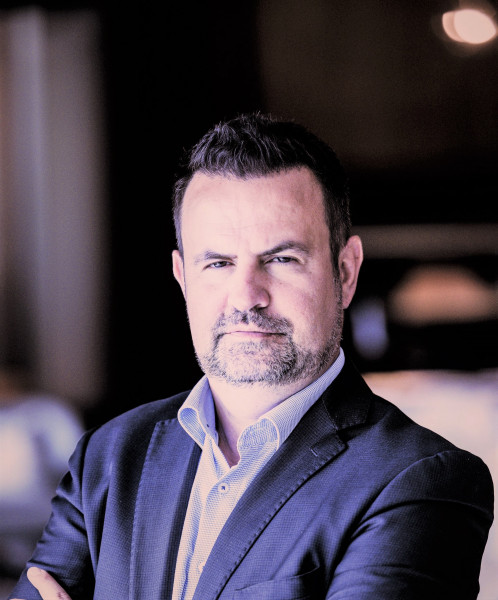



The meeting of business, technology, and law in the digital economy
The digital economy raises new issues that pose new challenges for public authorities to assess; in particular, the use of innovative solutions has raised compliance requirements related to intellectual property to a new level. Rapidly changing market conditions are in themselves a driver for business adaptation, and the wave of EU and national legislation and regulation triggered by digital transformation requires real-time responses from business compliance systems. What does compliance look like in the light of business expectations for innovative technologies, in particular artificial intelligence?
08:55 - 09:00
09:00 - 09:30
The challenges of the digital economy from a public authority perspective
Speaker: dr. Péter Lábody, jogi, nemzetközi és innovációs ügyekért felelős elnökhelyettes, Szellemi Tulajdon Nemzeti Hivatala
09:30 - 10:00
The challenges of the digital economy from a business compliance perspective
Speaker: dr. Magdolna Csömör, Head of Regulatory, 4IG
10:00 - 10:35
Fireside chat with György Tilesch: Corporate AI as innovation and compliance: where's the contradiction here?
Moderator: dr Andrea Megyeri, Head of Innovation and Content Transformation, Wolters Kluwer Hungary Kft.
Conversation participants:
10:35 - 10:50
netPORT for Digital Economy: Let's navigate together!
Moderator: dr. Judit Firniksz, senior researcher, PPKE Versenyjogi Kutatóközpont, scientific advisor to Wolters Kluwer Hungary
Conversation participants:
An imperative development for web designers is that as of June 28, 2025, the e-accessibility requirements will come into effect for the most common digital services and digital products. However, equal access to navigation and information in the online world does not only affect people with visual, hearing, intellectual, neurological or physical disabilities. An accessible web can also contribute to the overall competitiveness of a business, as many other groups of consumers can also benefit from a well-designed web interface. A well-designed and accessible web portal can be seen as a gateway in the digital economy, allowing users to enter easily and securely, thus increasing the operator's competitiveness.
In the digital space, new technologies have completely transformed the way consumers are communicated with in commerce – bringing to the fore completely new issues in marketing, such as ranking and dark patterns. Following the changes, the Commission plans to carry out an assessment of the adequacy of EU consumer regulations for fair treatment in the digital space (Digital Fairness) in 2024. This compliance check will review the adequacy of existing EU rules on consumer protection issues such as online consumer vulnerability, dark patterns, personalisation practices, influencer marketing and subscription contracts.
11:20 - 12:00
Panel discussion: New expectations in web design from June 2025
Moderator: dr. Judit Firniksz, senior researcher, PPKE Versenyjogi Kutatóközpont, scientific advisor to Wolters Kluwer Hungary
Conversation participants:
12:00 - 12:40
Panel discussion: Martech & Digital Fairness – Innovative technologies in marketing
Moderator: Prof. dr. Klára Gellén, Professor, Deputy Rector for Education, University of Szeged, Institute of Business Law
Conversation participants:
There is a lot of uncertainty surrounding B2B data flows due in no small part to new interpretations of data protection and copyright laws. It is also clear that the relationships in the data value chain must be sorted out, and new players, such as data brokers, are emerging. Therefore, it is crucial in the field of corporate data sharing and data trading to focus on the aspects that need to be considered for the legality of data trading transactions on the seller and/or buyer side. At the same time, the artificial intelligence value chain is built on top of the data value chain, relying on teaching data, test data, etc., and the problems spill over here as well: the transaction cost-increasing effects of data selling and sharing due to uncertainty also appear here, and in many cases, they are a factor that impedes the data sharing transaction and the subsequent development and innovation.
NIS2 does not establish any expectations that a company should not, in its own interest, comply with. The overall change in the legal environment for cybersecurity shows that the risk of cyber-attacks is increasing; it is no longer a question of whether it will happen but when. The attack could affect not only large companies but also small and medium-sized enterprises less concerned with cyber defence. However, an important new element of NIS2 is that the companies concerned must protect not only their own systems but also the systems of their suppliers, adding new assessment criteria to the cybersecurity value chain.
13:30 - 13:45
Paperless office: legal and technological requirements
Speaker: dr. Lilla Lovas, Head of Legal, Microsec Software Engineering & Consulting Ltd.
13:45 - 14:25
Panel discussion: Data economy – The data is there, but how can it be legally monetised?
Moderator: dr. Judit Firniksz, senior researcher, PPKE Versenyjogi Kutatóközpont, scientific advisor to Wolters Kluwer Hungary
Conversation participants:
14:25 - 15:05
Panel discussion: Changes in the cybersecurity regulatory environment
Moderator: Gábor Varga, AI and innovation advisor
Conversation participants:
15:05 - 15:25
The Artemis Protocol: Taming the Wilderness of AI, Learning and High Risk Technologies
Speaker: Theodore Sebastian Boone, Of Counsel, Dentons and Member of the Faculty, Corvinus University; former President American Chamber of Commerce in Hungary, Dentons Budapest and Corvinus University of Budapest School of Business
15:25 - 15:30
NetPORT Pub gives professional networking a brand new form. Recognising that we can only navigate the sea of regulation together, we want to provide an unconventional opportunity for direct dialogue across professional disciplines, hoping to create a new tradition. In this way, the netPORT initiative aims to provide a port where professionals from a wide range of backgrounds can meet.
Taking advantage of the surroundings of Béke Hotel, the closing event will have the informal atmosphere of a harbour pub, where sailors can meet after arrival and before departure to discuss their experiences and questions over a few tasty bites.
The experts of the sections will be waiting for participants at their regular tables to discuss the regulatory issues they are facing. Naturally, in addition to specific compliance issues, there will be a particular focus on how legal markets are being transformed by technology and technology-based regulation and what this means for competition and competitiveness in legal services. How to use legaltech tools, manage processes, and implement compliance requirements securely but efficiently, and what impact this has on the competitiveness of legal service providers in the broad sense.
Co-organizer
Silver Sponsor
Silver/Expert Sponsor
In association with
Organisation, general questions

Sponsorship

Program
